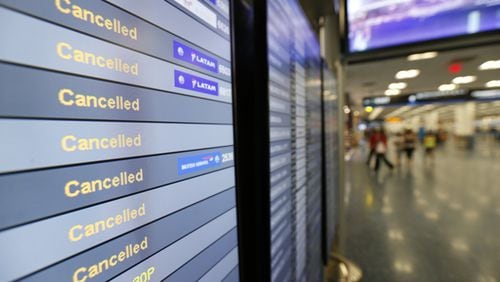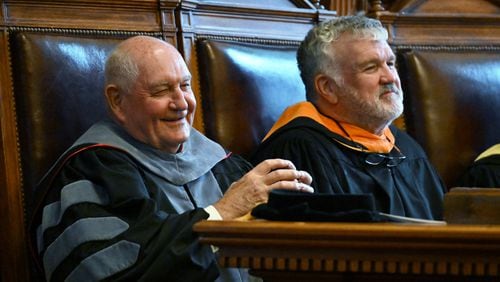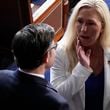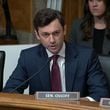When evacuees from Florida expressed shock at sky-high air fares for last-minute trips and accused airlines of price gouging, some frequent business travelers reacted with knowing bemusement.
“Overall, last-minute prices were in the same ballpark as a business traveler would pay,” said Patrick Surry, chief data scientist at Hopper, an air travel app.
Last-minute air fares can be several times higher than discounted advance-purchase fares that vacationers typically pay. A key difference in the case of Hurricane Irma was that rather than corporate road warriors on an expense account paying the tab for last-minute fares, it was regular people trying to escape the wrath of a monster storm.
The U.S. Department of Transportation said it has received consumer complaints from areas affected by Harvey and Irma. “We will evaluate whether they raise any violations of our regulations,” a DOT spokesperson said in a written statement.
U.S. Senators Richard Blumenthal, D-Conn. and Edward Markey, D-Mass. called for an investigation into reports of airline price gouging targeting evacuees before Hurricane Irma.
The two senators wrote in a letter to U.S. Transportation Secretary Elaine Chao that “a number of troubling reports… detail exorbitantly high airfares on a number of airlines.” They cited an air fare that increased from $159 to $1,020 in one day, and another report citing $3,000 fares for tickets from Miami to New York City.
“We demand that the Department of Transportation (DOT) investigate this situation, including looking at the price of flights from Caribbean islands, including Puerto Rico and the U.S. Virgin Islands, to the mainland U.S.” during the period, they wrote in the letter. The DOT is “uniquely empowered to investigate and act upon claims of anti-consumer conduct.”
Atlanta-based Delta Air Lines was at the center of many of the price gouging accusations amid Hurricane Irma evacuations, after a woman tweeted an image of a price change for a Delta flight from $547.50 to $3,258.50. Leigh Dow tweeted: "Shame on you @delta. Jacking from $547 to over $3,200 for people trying to evacuate responsibly?" It was retweeted close to 40,000 times.
But after Dow’s initial tweet, a Delta agent responded asking for more details and added, “I would love to try and help.” Dow later tweeted: “.@Delta reached out & helped tremendously. Note to travelers, always call airline directly if something doesn’t look right.”
Delta said it was a fare displayed on Expedia.com, and the airline says its lowest fares can be found on its own website. The airline’s agent found another fare for Dow.
“Delta has not increased any fares in response to the hurricane,” said spokesman Anthony Black.
Still, in response to the uproar and amid pressure from Florida's attorney general, Delta and other airlines added flights out of Florida and put in place fare caps for flights out of the hurricane-affected areas in Florida. Delta put in a cap of $399, JetBlue put in a $99 cap and American Airlines implemented a $99 fare cap on economy class seats out of Florida. Delta said its fare cap applied to seats in every class, including first class.
The U.S. Justice Department and Federal Trade Commission have made it clear that they are keeping an eye out for companies that exploit hurricane victims in other ways.
The agencies issued a statement Tuesday saying they “intend to hold accountable those who enter into anticompetitive agreements that take advantage of hurricane victims or hurricane relief efforts,” and will prosecute companies that fix prices or rig bids.
But when it comes to airlines, the question of when ordinary airline “revenue management” tactics turn into price gouging might be trickier, because of airlines’ use of “dynamic pricing,” with prices fluctuating greatly for the same product and going higher as demand increases.
“I think the challenge was that many consumers were experiencing these last-minute prices that they normally wouldn’t see because they’re planning further ahead. So they’re seeing prices two, three, four or five times higher than they normally would,” Surry said. “Lots of people are kind of learning that at the same time.”
This isn’t the first time airlines have been accused of price gouging in a time of disaster.
In 2015 after an Amtrak derailment in Philadelphia, the DOT launched an investigation in response to consumer complaints about irregular air fares after the crash and sought information from Delta, American, United, Southwest and JetBlue.
The DOT under the Obama administration cited U.S. code on unfair and deceptive practices and unfair methods of competition, saying that: “Generally, a practice is unfair if it (1) causes or is likely to cause substantial injury to consumers, (2) cannot be reasonably avoided by consumers, and (3) is not outweighed by countervailing benefits to consumers or to competition.”
But by December 2016, the DOT said it had concluded its investigation after analyzing more than 5,000 pages of data and found that “there was no evidence of unfair manipulation of airfares or capacity, nor evidence of unconscionable increases in fare beyond normal pricing levels, in the aftermath of the derailment.”
The concerns about price-gouging may be exacerbated by the broader financial pressures of the disaster, including the cost of evacuation and homeowners’ cost of rebuilding. And some people might have sought to fly out of Florida rather than drive “to travel to a friend or relative who lives farther away… where they were trying to get free accommodation,” Surry said. “I think that’s a big part of it, where it’s a consumer who’s used to probably visiting their brother and paying $200 for a ticket, but they tend to book it a month or two months ahead of time. So they’re looking to save that money on a hotel, but they’re not used to buying that ticket two days ahead.”
Jonathan Williams, an associate professor of economics at the University of North Carolina at Chapel Hill, said if senators and other politicians want something to be done, “then maybe the federal government should be subsidizing people to get out.”
“We want the carriers to do everything they can and get in there and get as many people out as they can. The question is, how are they going to pay for it and who is going to pay for that?” Williams said. Politicians “want the response but they don’t want to pay for it, and that’s just not the way the world works.”
Surry also said “there’s maybe an argument, if you’re going to introduce some sort of regulation or coordination, why doesn’t FEMA get involved?” Looking back to the days before airline deregulation when prices were fixed, “maybe you could think of some sort of disaster relief system,” he said.
One airline has already announced that it expects a financial toll from Hurricanes Harvey and Irma, which caused thousands of flight cancellations.
Southwest Airlines CEO Gary Kelly said he expects $40 million to $60 million in financial impact from Hurricane Harvey, and similar impact from Hurricane Irma.
Blumenthal and Markey, the senators who wrote the letter seeking an investigation into price gouging, wrote in their letter: “Airlines certainly have a right to a reasonable return for services rendered and vagaries in pricing are to be expected; but airline have no right to impose exorbitant, unfair prices on Americans simply trying to get out of harm’s way.”
MYAJC.COM: REAL JOURNALISM. REAL LOCAL IMPACT.
AJC Business reporter Kelly Yamanouchi keeps you updated on the latest news about Hartsfield-Jackson International Airport, Delta Air Lines and the airline industry in metro Atlanta and beyond. You'll find more on myAJC.com, including these stories:
Never miss a minute of what's happening in local business news. Subscribe to myAJC.com.
In other Irma news:
About the Author







